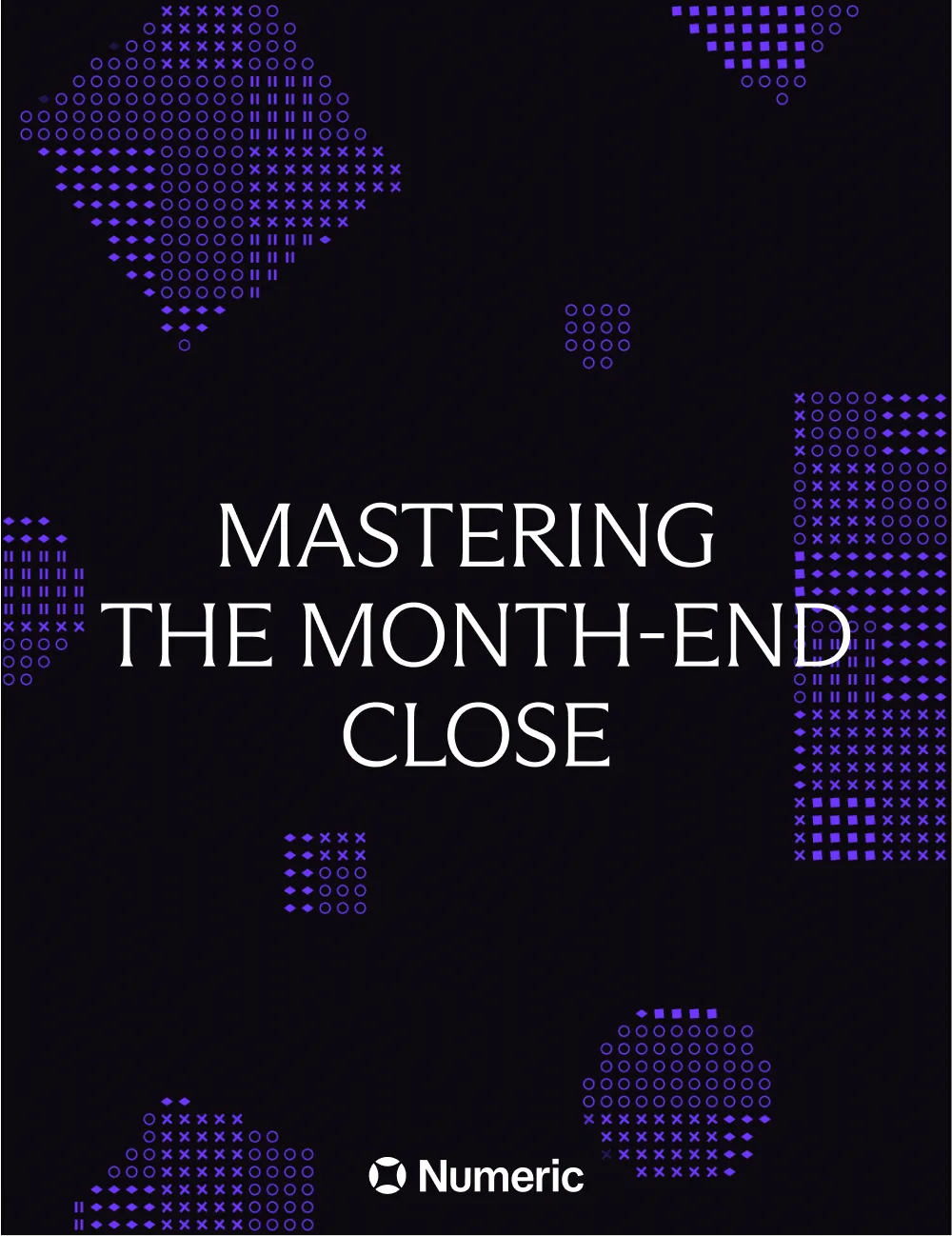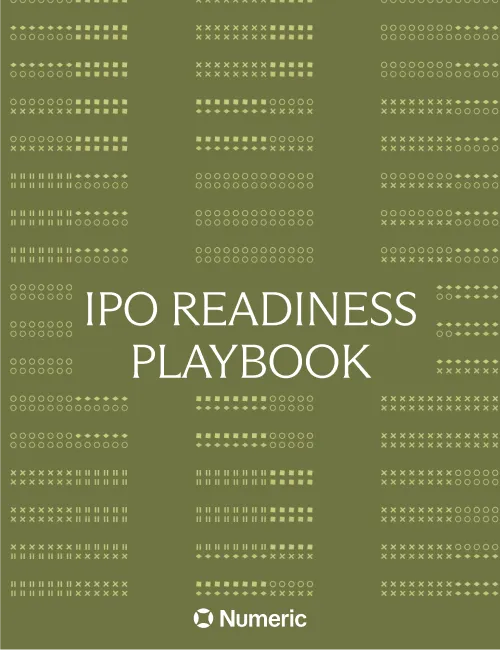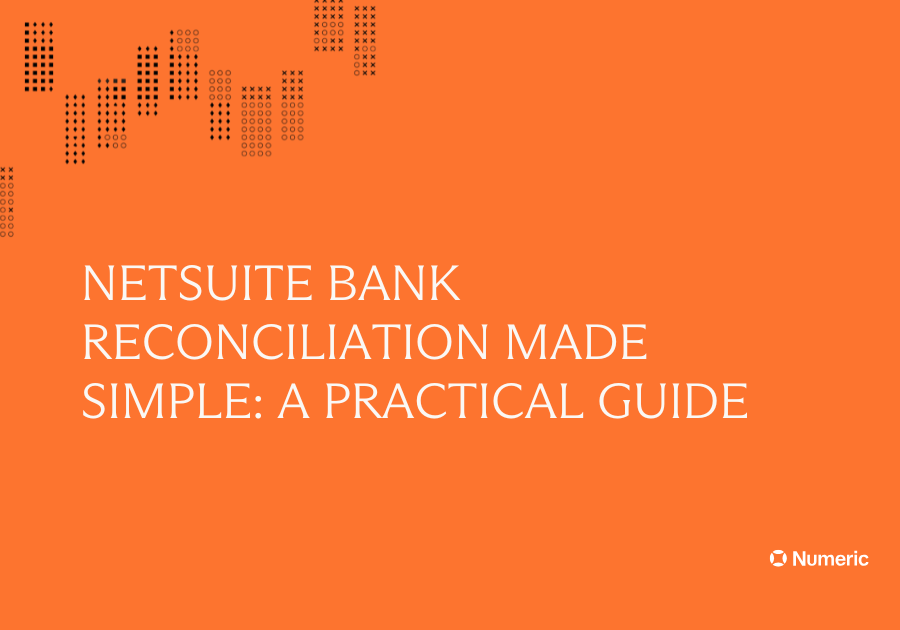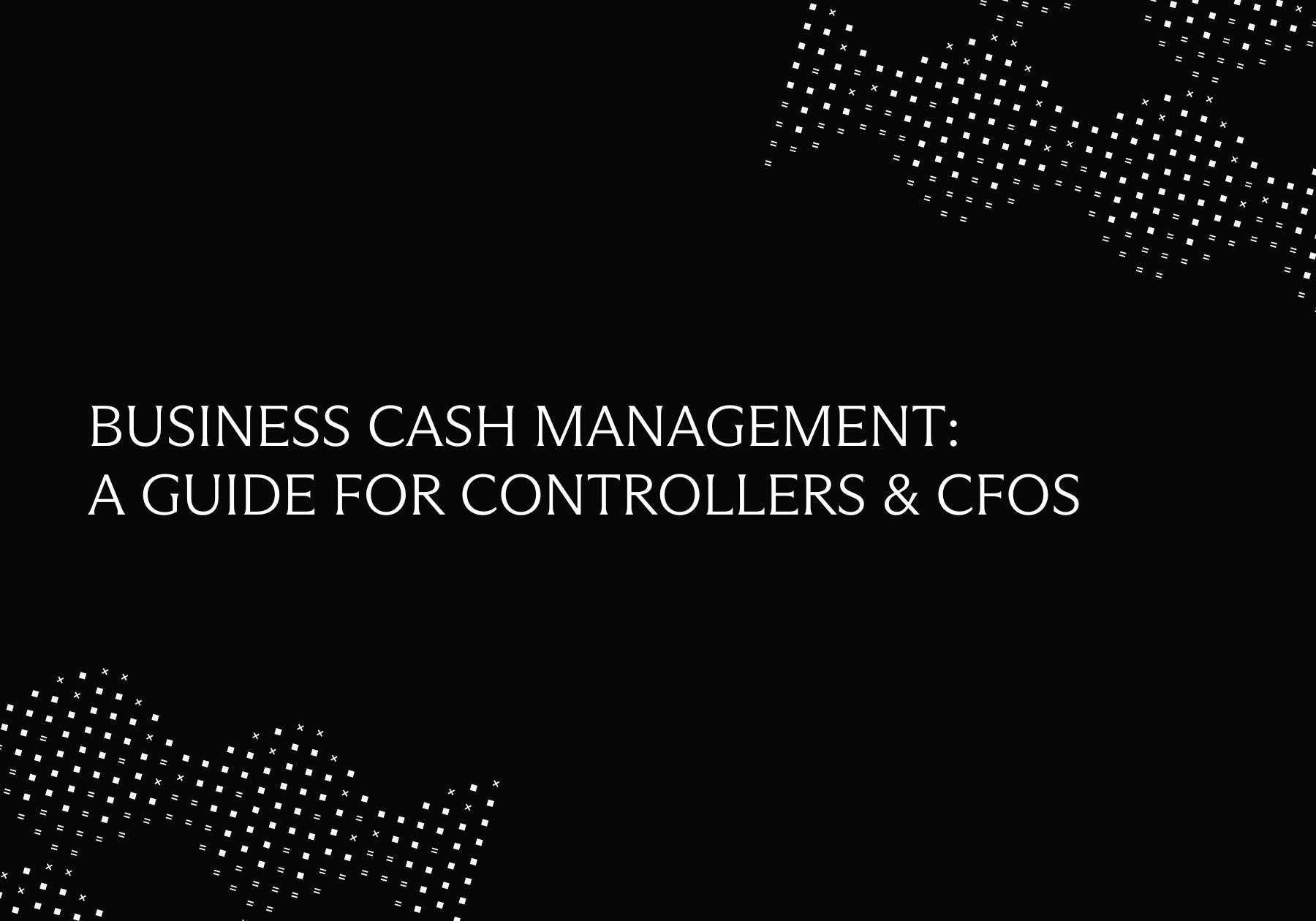Numeric raises $51M Series B, led by IVP, to expand beyond close management
.png)
When I was serving as the VP of Finance at Hearth, our team was stuck under mountains of manual work.
We spent hours each month-end close dragging and dropping files, editing cells, and “staring and comparing” our way through spreadsheet tabs. This hunt to produce accurate data for the company required diligence, but it shouldn’t have required even close to the amount of time we spent clicking away deep into the night.
So, in an effort to solve for both the mental & physical toll that the close takes on accounting teams, my co-founders Anthony, Andrew, and I set out to build Numeric: initially a close platform for modern finance teams.
To that end, we have largely succeeded.
Today, Numeric is a close automation platform that unifies close management, reporting, and starting today, cash management for complex accounting teams. Teams like Wealthfront, Brex, OpenAI, and Plaid are increasingly leveraging Numeric to rethink and automate their recurring workflows.
But with each year and every customer conversation, we’ve realized that the close only represents an abstraction of dozens – realistically hundreds – of more granular issues plaguing accounting teams.
The close was a great place to start, but it’s clear to us that to best serve our customers and to build the kind of company we’ve long envisioned, accountants need a platform that can do much more.
So, today, on the heels of our $51M Series B, led by IVP with with participation from Menlo Ventures, Founders Fund, Fifth Down, Alkeon, 8VC, Socii Capital, Access Industries, Friends & Family Capital, Long Journey Ventures, and others, we’re taking one step forward.
Beyond the Core Product
We’ve long believed that every company has three core datasets – one for customer / prospect data, another for employee data, and a third for company financials.
Within each dataset lies a set of potential problems to solve (and therefore products to build).
Salesforce and HubSpot both chose to centralize around the graph of the customer and prospect dataset; in turn, they built an array of products circling around the original CRM.
Rippling has built a colossal business mapped to the employee data graph, with each product –payroll, device management, etc. – becoming more powerful in conjunction with the others.
Because both the employee dataset and customer dataset are fundamental to any company’s operations, owning those datasets entirely has turned Rippling and Salesforce into multi-billion dollar “compound startups”.
A company’s financial dataset is no less important, yet finance teams lack the same data aggregation present in other industries. In fact, I’d argue that most accounting software still sits atop a fundamentally broken data layer in the CFO suite.

Until that’s fixed, accountants will continue to wade out in search of infinite point solutions to handle their workflows. And while these tools might suffice individually, they will only accentuate ongoing data fragmentation.
Being able to fully own a business’ financial data layer requires having a product offering that goes beyond building just a best-in-class close management solution.
It also requires having new teams internally that operate with full autonomy to chase down large problems, operate with a 0 → 1 mindset, and really function like a start-up within a startup.
Our Cash Management team was the first of these organizations; here’s what they’ve built.
Debuting Numeric Cash Management
We heard loud & clear from customers: few processes are as core to a company’s financial health as cash reconciliations — and few processes contribute as heavily to the finance team’s frustration.
Between touch-and-go bank integrations, inaccurate cash matching rules, and the sheer volume of transactions to reconcile, accountants have come to accept software that reconciles even 30% of their cash transactions as a net-positive.
So, what about that remaining 70%, representing what’s actually the majority of transactions? Teams either employ in-house staffers whose entire role is to comb through these cash flows daily or shell out valuable spend for an off-shore team to handle the tedium.
Today, we’re launching Numeric’s Cash Management platform, offering a much simpler, more automated path.
With a best-in-class 90+% cash matching rate and AI rule builder, this product isn’t just some roadmap talking point. It’s already made a night-and-day difference for teams that operate at complexity and scale.
Take Brex, an industry leader in corporate spend management. When we first started working with them, they’d grown weary of their patchwork of underperforming software, overstretched employees, and expensive off-shore labor. Since adopting Cash Management, they’ve streamlined a days-long cash process to something that now only takes a few hours.
.png)
As Sr. Accountant Kyle Gillingwater states, “Everyone on the team is in Numeric. Everyone’s been trained on and is leveraging the cash module for their work. People know how to use it, it's intuitive, it's connected with the other aspects of Numeric that we leverage. All in all, it's a much better fit for us."
Controller Kevin Moore paints an ever brighter picture:
“I think ultimately that implementing Numeric is one of the best decisions I've made as Controller over my 7 years at Brex.”
Cash Management as a Step Forward to a Full Platform
With the addition of Cash Management to our existing product suite, we are evolving beyond our close management origins to establish a more unified financial data layer for enterprises.
This Series B will allow us to continue realizing that vision. We’re already hard at work, building new products that are each designed to automate a different critical accounting workflow. In time, we hope to automate manual work in accounting entirely.
Picture Numeric’s growth as a staircase: our first step was to dare in 2020 that we might build an AI close management solution to alleviate close pain points for enterprise teams. Then, one foot after the other, we built onto that core functionality, adding our reporting and analytics module and features beyond that in response to customer asks and prospects’ insights. Solving cash reconciliations, in fact, was one of those asks.
However, building Cash Management only gave us greater conviction that the endgame wasn’t to settle on a set of products that assisted with just a few recurring workflows. The endgame was to revamp the foundation that powers corporate finance entirely.
By 2027, I believe that Numeric will serve as the connected platform for finance operations.
Between the Series B and this product launch, we’ve taken one step forward and one step up.
Yet, each day, we better understand that there are more steps than we could have imagined to build what lies ahead. We’re fired up, the climb is steep, and we’re all in.
-
If you’re interested in playing a role in our next chapter, we’re hiring.
If you’re interested in exploring why leading accounting teams are excited about the Numeric approach to the month-end close, schedule a time to talk with our team.
Numeric: the #1 AI accounting tool in 2026





















.png)